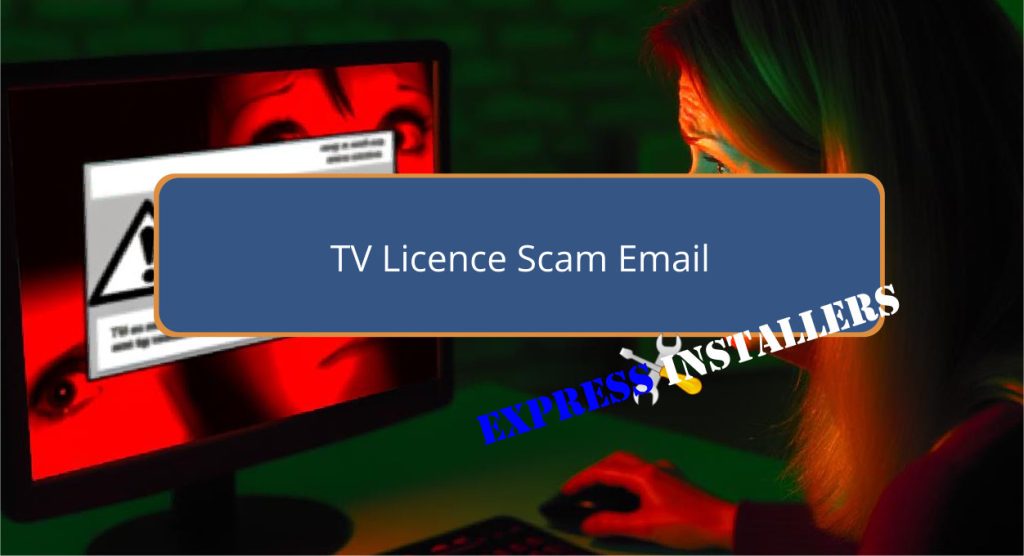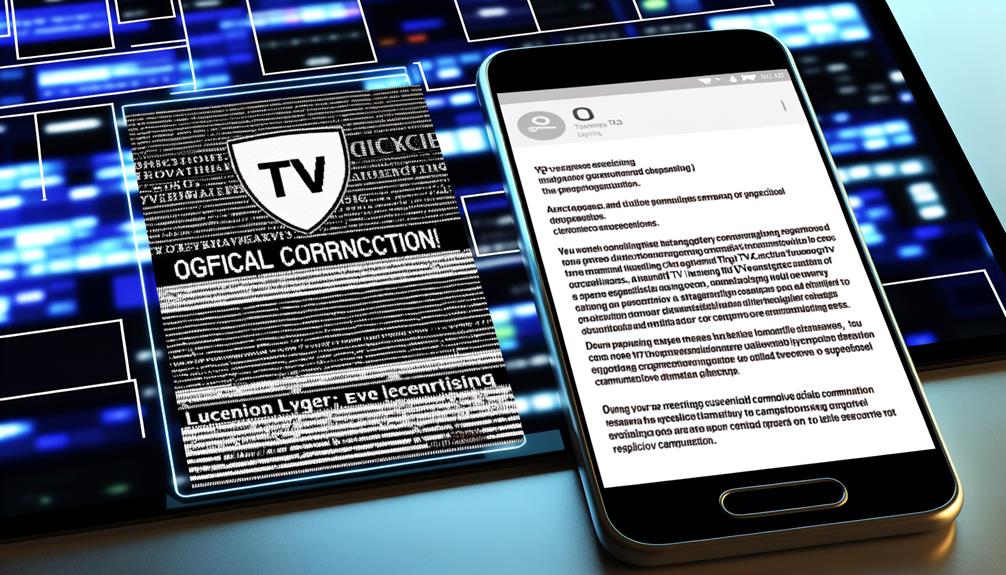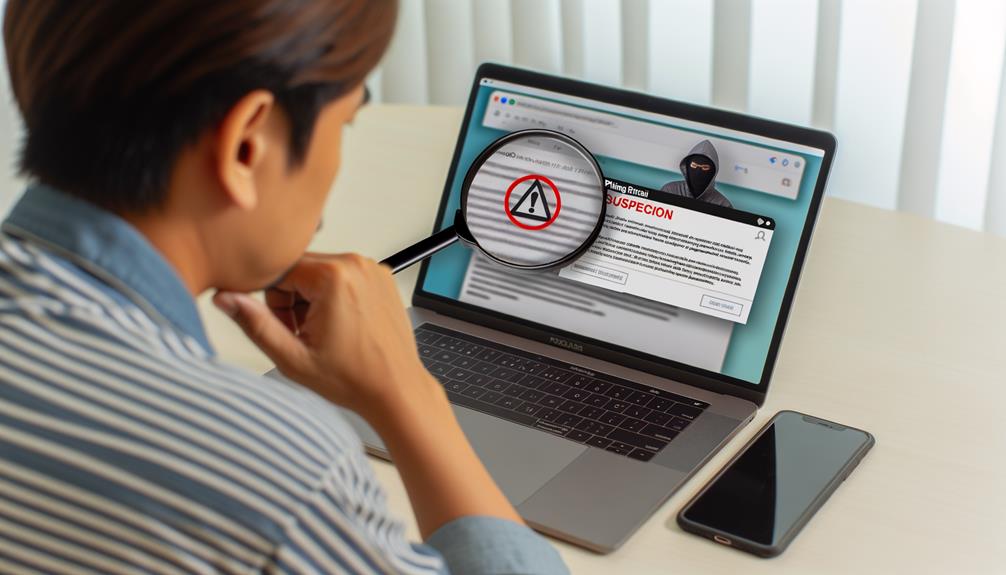
TV Licence scam emails are fraudulent attempts to steal personal and financial information by pretending to be the official TV Licensing agency. These emails may claim that your TV Licence has expired or that you are due a refund, often using generic greetings and urgent language. Verify the sender’s address—genuine communications come from @tvlicensing.co.uk. Do not click on any links in suspicious emails. Report such emails to report@phishing.gov.uk. If you’ve provided information to scammers, contact your bank and report the incident to Action Fraud. Understanding these signs and steps can help you protect against scams.
Quick Summary
- Genuine TV Licensing emails include personalized details like your name or postcode.
- Official TV Licensing emails come from @tvlicensing.co.uk or @spp.tvlicensing.co.uk.
- Report suspicious emails to report@phishing.gov.uk for investigation.
- Scammers often claim refunds are due or that the TV Licence has expired.
- Avoid clicking on any links in suspicious emails and verify authenticity independently.
What Is a TV Licence Scam?
A TV Licence scam is a fraudulent scheme where scammers impersonate TV Licensing to deceive individuals into providing personal and financial information. These scams frequently target older individuals, particularly those aged 75 and over, who are required to pay for a TV Licence.
Identifying scammers can be challenging as they utilize convincing methods such as texts, phone calls, letters, and phishing emails. Scammers often claim that refunds are due or that the TV Licence has expired, aiming to obtain bank details from unsuspecting victims.
It is essential to recognize these deceitful tactics and avoid responding, clicking on links, or sharing personal information. Report any suspicious activity to Action Fraud or via report@phishing.gov.uk to mitigate risks.
Recognizing Scam Emails
Identifying scam emails requires vigilance and awareness of specific indicators that differentiate them from genuine communications. Recognizing red flags is essential to avoid falling victim to common tactics used by scammers.
To help identify a scam email, consider the following:
- Personalization: Genuine emails from TV Licensing include your name or part of your postcode, whereas scam emails may use generic greetings like ‘Dear Customer’.
- Email Address: Verify the sender’s email address. Official TV Licensing emails end with @tvlicensing.co.uk or @spp.tvlicensing.co.uk.
- Payment Notifications: For TV Licensing payment card customers, legitimate mobile payment emails come from noreply@paypoint.com.
- Reporting: Report suspicious emails to report@phishing.gov.uk and visit their website for scam prevention tips.
Awareness of these red flags enhances email security.
Genuine TV Licensing Communication

Genuine TV Licensing communications are characterized by personalized details, such as your name or part of your postcode, ensuring recipients can easily distinguish them from potential scams. Official emails will originate from addresses ending in @tvlicensing.co.uk or @spp.tvlicensing.co.uk, enhancing email security.
Additionally, TV Licensing payment card customers might receive emails from noreply@paypoint.com regarding mobile payments. In contrast, scam emails often use generic greetings like ‘Dear Customer‘ or your email address without personalization.
To confirm the authenticity of a communication, always verify the sender’s email address. Report suspicious emails to report@phishing.gov.uk and avoid clicking on uncertain links. Ensuring email security and recognizing genuine communication is critical in protecting personal information.
Steps to Take if You Receive a Scam Email
Recognizing genuine TV Licensing communications is the first step; however, knowing the appropriate actions to take if you encounter a scam email is equally important.
Adhering to cybersecurity precautions and enhancing your email safety can greatly reduce the risk of online fraud.
If you suspect a phishing attempt, follow these steps:
- Do not click on any links: This prevents potential malware infections.
- Verify the message’s authenticity: Visit the official TV Licensing website independently.
- Report the email: Forward it to report@phishing.gov.uk for investigation.
- Notify authorities of fraudulent websites: Report any linked fake sites to the National Cyber Security Centre.
Actions if You’ve Been Scammed

If you have fallen victim to a TV licence scam, immediate action is essential to mitigate potential damage. Begin by contacting your bank to secure your financial accounts and prevent unauthorized transactions.
Report any shared personal details to Action Fraud for thorough fraud protection. Forward the scam email to report@phishing.gov.uk to aid in cybersecurity awareness efforts.
Additionally, notify the National Cyber Security Centre about any fake websites to enhance online safety and scam prevention. Seek guidance from TV Licensing’s official website to better recognize and avoid future scams.
Taking these steps promptly not only protects you but also contributes to broader fraud prevention initiatives, safeguarding others from similar threats.
Reporting TV Licence Scams
Reporting TV licence scams promptly is a critical step in protecting yourself and others from potential fraud. To guarantee effective action, follow the established reporting process and adhere to prevention tips. Start by recognizing scam email examples and warning signs, such as unsolicited refund requests from TV Licensing.
Here’s a concise reporting guide:
- Forward suspicious emails to report@phishing.gov.uk for investigation.
- Report fraudulent websites related to TV Licence scams to the National Cyber Security Centre.
- Contact Action Fraud if you’ve shared personal or bank details with scammers.
- Stay vigilant—TV Licensing does not send emails about refunds.
Additional Resources and Support

Accessing additional resources and support is essential for staying informed and protected against TV licence scams. The TV Licensing website provides detailed guidance on identifying and avoiding email scams, ensuring users can discern legitimate communication.
For immediate concerns, a support hotline is available, offering expert advice on potential scam emails. Additionally, engaging in community forums can provide real-time insights and shared experiences from others who may have encountered similar scams.
Always scrutinize emails for personalized information, as genuine TV Licensing communications will contain specific details. In cases of suspicion, promptly report the email to the National Cyber Security Centre.
Leveraging these resources enhances your ability to navigate and mitigate risks associated with TV licence scams effectively.
Frequently Asked Questions
Is There a Scam About TV License Cancellation?
Yes, there is a scam involving TV license cancellation. It employs phishing tactics and email fraud, urging recipients to click on malicious links. TV Licensing typically addresses missed payments or renewals, not cancellations.
Does My TV Licence Automatically Renew?
No, your TV Licence does not automatically renew. The renewal process requires manual action by the licence holder. Failure to complete the renewal process on time can result in legal consequences or fines.
Do You Get a Reminder to Renew a TV Licence?
TV Licensing does not send renewal notifications via email. Instead, reminders are mailed to the address on the licence. Customers should monitor their licence expiration date to avoid legal consequences or fines.
What Is TV License Email Address?
Official TV Licensing email addresses end with @tvlicensing.co.uk or @spp.tvlicensing.co.uk. For email verification and to confirm license validity, be cautious of emails from unknown sources and report suspicious emails to report@phishing.gov.uk.
Conclusion
To sum up, vigilance and awareness are crucial in mitigating the risks associated with TV licence scam emails.
Recognizing the hallmarks of fraudulent communications and understanding the characteristics of genuine TV Licensing correspondence are essential.
Immediate actions, such as reporting suspicious emails and securing personal information, can greatly reduce potential harm.
Additionally, seeking support from authoritative resources enhances protection against these scams.
The collective effort in reporting and educating about these threats serves to safeguard the public effectively.
